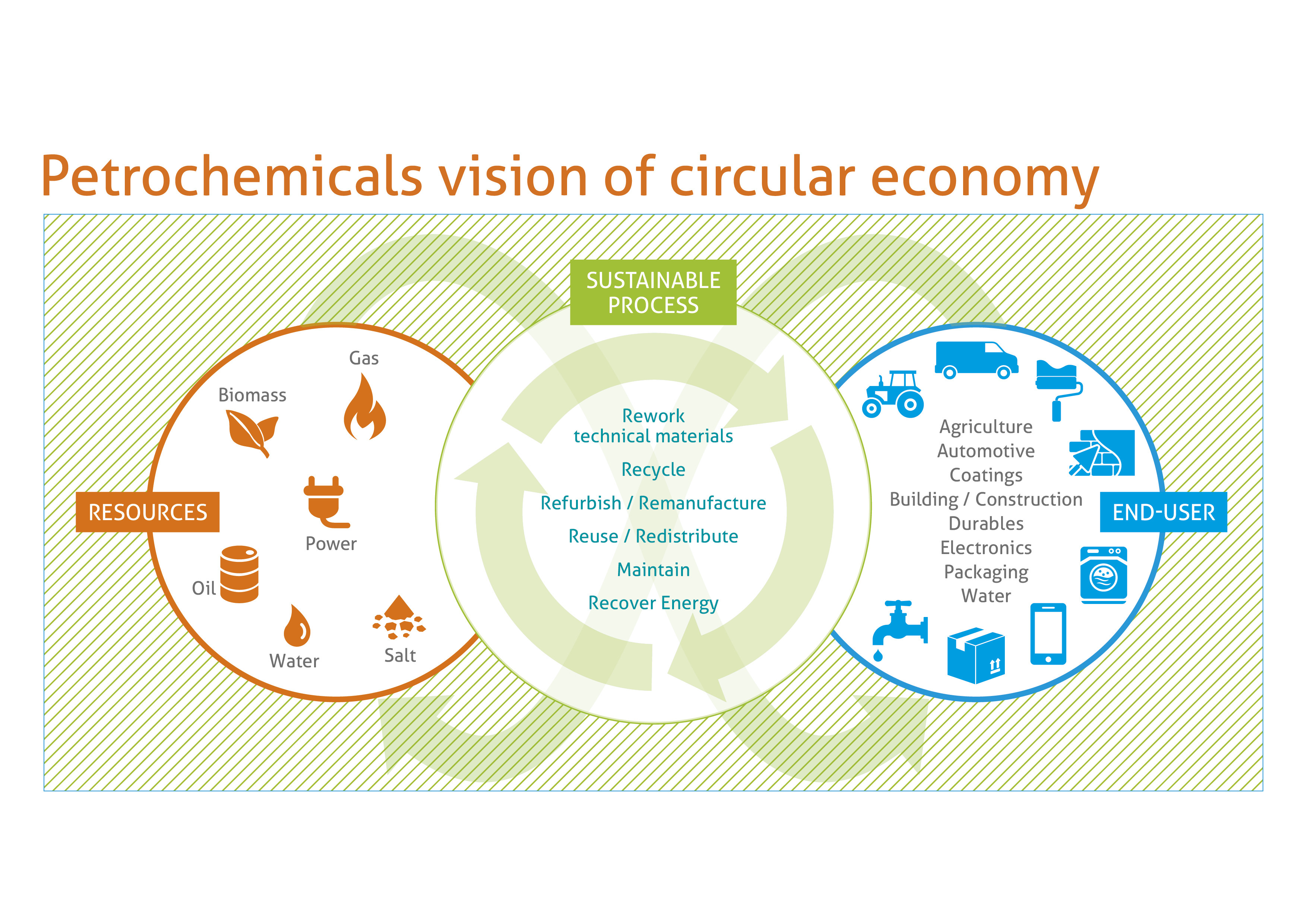Circular Economy
A circular economy aims to minimise the generation of waste and to maintain the value of products, materials and resources as long as possible in the economy. A transition from a linear to a circular economy The (petro)-chemical industry in Europe has already a proven track record of embracing the essence of the concept (preserve and enhance natural capital, optimise resource yields and foster system effectiveness) as an essential pillar of its business models. Managing cost is key to competing in global markets. This driver, coupled with the environmental benefits of the circular economy, explains why petrochemical producers in Europe see such opportunity in these efficiency steps.
EU Policy
In March 2020, the European Commission adopted a new Circular Economy Action Plan – one of the main blocks of the European Green Deal.
A The new Action Plan announces initiatives along the entire life cycle of products, targeting for example their design, promoting circular economy processes, fostering sustainable consumption, and aiming to ensure that the resources used are kept in the EU economy for as long as possible.
Our view
The chemical industry enables a circular economy by developing breakthrough technologies such as chemical recycling.
The chemical industry calls for the right conditions to be put in place to develop these solutions in Europe including a European Single Market for Waste, and better access to public and private funding for innovative technologies. The chemical industry is committed to further improving this technology through its research and development efforts. We also believe that the actions by the Circular Plastic Alliance platform and similar initiative will create a more dynamic market for recycled plastic, which will also increase demand in chemical recycling. This why it is important for chemical recycling to stay part of the EU’s innovation agenda and benefit from Green Recovery investments.
Petrochemicals also enables resource efficiency of downstream user industries as well as other consumers, for example by providing the essential building blocks for reducing waste (via ultra-thin packaging material like foils), increasing energy efficiency (for example via insulation material), reducing emissions (via renewable energy devices like solar panels and windmill blades) and fuel consumption (via additives), or enhancing the convenience of every-day products (for example light-weight plastics instead of heavy components).

Petrochemicals also act as enablers for the circular economy driving resource efficiency of downstream user industries as well as other consumers, for example by providing the essential building blocks for reducing waste (via ultra-thin packaging material like foils), increasing energy efficiency (for example via insulation material), reducing emissions (via renewable energy devices like solar panels and windmill blades) and fuel consumption (via additives), or enhancing the convenience of every-day products (for example light-weight plastics instead of heavy components).
